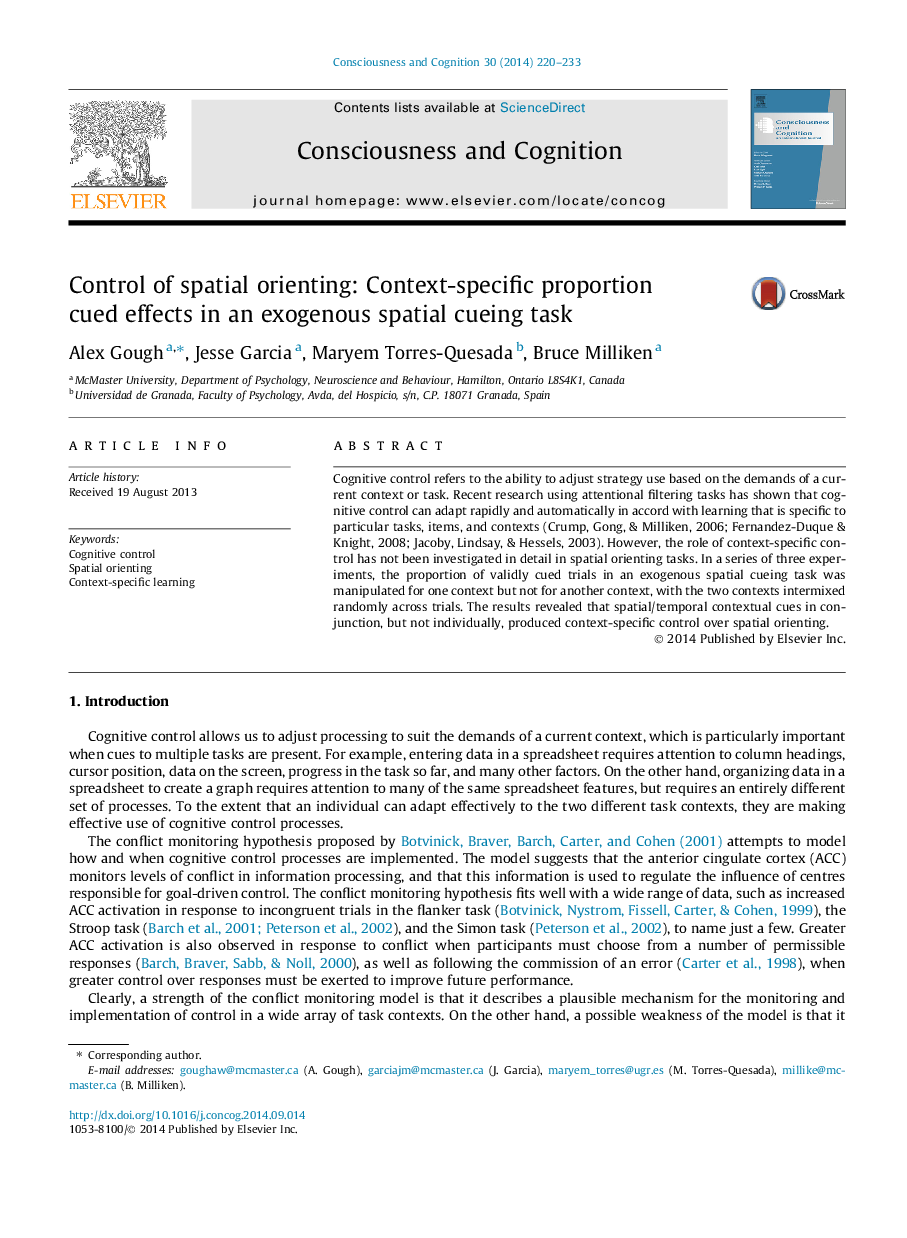| Article ID | Journal | Published Year | Pages | File Type |
|---|---|---|---|---|
| 7289770 | Consciousness and Cognition | 2014 | 14 Pages |
Abstract
Cognitive control refers to the ability to adjust strategy use based on the demands of a current context or task. Recent research using attentional filtering tasks has shown that cognitive control can adapt rapidly and automatically in accord with learning that is specific to particular tasks, items, and contexts (Crump, Gong, & Milliken, 2006; Fernandez-Duque & Knight, 2008; Jacoby, Lindsay, & Hessels, 2003). However, the role of context-specific control has not been investigated in detail in spatial orienting tasks. In a series of three experiments, the proportion of validly cued trials in an exogenous spatial cueing task was manipulated for one context but not for another context, with the two contexts intermixed randomly across trials. The results revealed that spatial/temporal contextual cues in conjunction, but not individually, produced context-specific control over spatial orienting.
Keywords
Related Topics
Life Sciences
Neuroscience
Cognitive Neuroscience
Authors
Alex Gough, Jesse Garcia, Maryem Torres-Quesada, Bruce Milliken,
